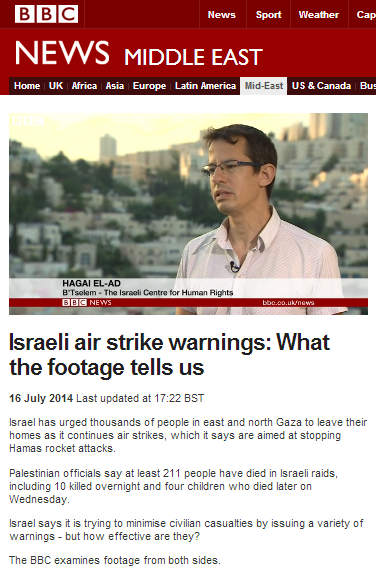As we have repeatedly documented in recent months, the BBC has to date failed to provide its audiences with information which would enable understanding of the multiple factors which lie behind the rise in violence emanating from Palestinian Authority controlled areas in Judea & Samaria:
BBC PROMOTES ‘CHICKEN AND EGG’ NARRATIVE ON JENIN
BBC NEWS STILL AVOIDING THE ISSUE OF LACK OF PA GOVERNANCE
WHY THE BBC NEEDS TO UPDATE ITS FATAH PROFILE
BBC’S BATEMAN CONTINUES TO AVOID CRUCIAL CONTEXT TO TERRORISM
In light of that continuing avoidance of crucial background information by the BBC, the corporation’s initial radio coverage of the terror attacks in Jerusalem on the morning of November 23rd is worthy of review.
Listeners to BBC Radio 4’s ‘Today’ programme on that morning heard the following in the 8 a.m. GMT news bulletin (from 2:03:43 here):
Newsreader: “One person has died and up to 15 others have been wounded in two separate bombings in Jerusalem. The explosions took place at bus stops in the city. The Israeli police say the incidents are being treated as suspected Palestinian attacks.”
In fact, by the time that news bulletin was aired it was known that the number of people injured in the attacks was higher than stated and the police described the incidents as terrorism from the outset.
Listeners to the 7 a.m. GMT edition of the BBC World Service radio’s ‘Newsday’ programme heard a longer report from the BBC Jerusalem bureau’s Tom Bateman (from14:33 here) in which the phrase “suspected Palestinian attack” was also used:
James Copnall: “…to Jerusalem: some breaking news there. A couple of explosions at bus stops. It seems up to 15 people have been wounded, one person has died – that’s according to the emergency services. We can find out more from our correspondent Tom Bateman. […] What do we know?”
Bateman: “[…] The news we have so far is two explosions in Jerusalem. These happened at around half seven in the morning local time so a very busy time of day, people heading to work. Both appear to be targeting bus stops. The bigger explosion of the two was at the main entrance…a main road entrance to Jerusalem on the highway that links Jerusalem to Tel Aviv. And what we know from paramedics is that at least 12 people have been wounded in that. Two of them were reported critically injured and, as you say, in the last few minutes conformation from hospital officials that one of those has died. And a second explosion at another bus stop in another part of the city with at least three wounded – said to be…eh…with…ehm…light injuries or mild injuries – in that attack. And we’ve had the police in the last half hour or so put out a statement saying this is a…suspected Palestinian attack. The prime minister also saying that he’s going to hold an assessment – security assessment – with security chiefs in Tel Aviv in the coming hours.”
Copnall: “From the Palestinian side, has any group said it was responsible for this?”
Bateman: “No claims of responsibility. Hamas – the Palestinian militant group – has praised the attack. There hasn’t been a claim of responsibility. The point here is that we’ve had this year a very significant wave of attacks by Palestinians and Arab Israelis targeting the Israelis which have killed more than 20 people. They’ve been gun and knife attacks. Meanwhile, the Israeli military has carried out waves of military raids into Palestinian cities in the occupied West Bank and this has been a very high death toll for Palestinians: more than 130 killed in the West Bank this year. So there’ve been growing concerns about an escalation, about waves of violence but certainly the use of explosives in Jerusalem would be the most significant attack of its kind in years.”
Once again Bateman avoided providing any explanation of the factors behind the rise in the number of terror attacks which have to date resulted in the deaths of twenty-eight Israelis and foreign nationals this year. He refrained from clarifying that what he chose to describe as “waves of military raids” (thereby promoting false equivalence between that and what he seconds earlier described as a “wave of attacks”) are in fact counter-terrorism operations in response to attacks and planned attacks.
Bateman failed to inform listeners that the “more than 130” Palestinians killed includes a high proportion of terrorists and/or people engaged in violent rioting against Israeli forces at the time whereas twenty-four of the Israelis and foreign nationals killed since March were civilians.
Bateman’s reference to “the use of explosives in Jerusalem” fails to clarify to BBC audiences that the ISA recorded 113 attacks using explosives during September and October alone in Judea & Samaria, Jerusalem and inside the ‘green line’.
Copnall: “Yeah but if you go back 15, 20 years, bus bombings were relatively common were they not?”
Bateman: “Well during the years of the second Palestinian intifada – or Palestinian uprising – from 2000 to [connection lost] it was a frequent occurrence, a frequent tactic used by…ehm…err…Palestinian attackers back then. You know, that kind of thing had subsided in terms of its frequency since those days. So I think, you know, it’s the method of attack that will be of very great concern to Israeli security officials. There are unconfirmed reports that this was a device that was left at the scene. Now that’s Israeli media reports. It hasn’t been confirmed yet by officials.”
Bateman’s efforts to frame the attack as “the most significant attack of its kind in years” due to its location erase incidents such as a similar fatal attack at a Jerusalem bus stop in 2011 and a bus bombing in 2016. They also exclude a 2013 incident involving explosives on a bus in Bat Yam as well as the fact that explosives – described by the BBC at the time as a “homemade bomb” – have been used to carry out fatal attacks elsewhere in more recent years.
As long-time readers will be aware, the BBC’s record of reporting on terrorism against Israelis is patchy to say the least. Not only does that editorial policy hinder audience understanding of the topic but it also compromises the standard of reporting by BBC staff when they do get round to covering Palestinian terrorism.





Why do the BBC fall over backwards to report deaths of Palestinians but in this case by the Today Programme 9am News had taken it off?
Also there was the murder in Virgina USA of 6 people that was mentioned in both dispatches at 8 and 9 am.
Now look at the reality 1 killed out of less than 10 million in Israel is not as important as 6 killed in the USA out a population of 332 million equivalent to 0.18 killed in 10 million in the case of the USA.
The bias is obvious!